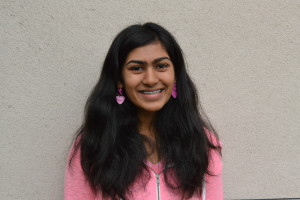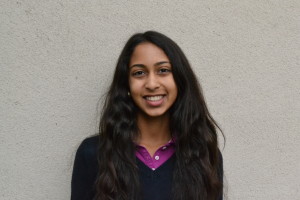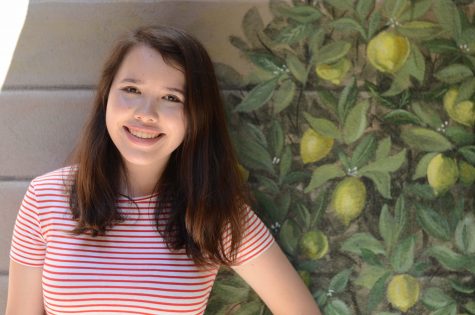Russia and Ukraine Conflict
Crimea’s parliament voted for a referendum to join Russia on Thursday.
Crimea, where Russian troops have been stationed for over a week, is currently an autonomous region of Ukraine, but 59 percent of its population is ethnically Russian.
Crimean citizens will be able to vote on whether they will join Russia on March 16. However, many Western officials, including the current governing body of Ukraine, do not consider Crimea’s government to be legitimate and state that decisions of this nature must go through Ukraine’s official government.
Ukraine was plagued with debt and corruption in 2013. The United Nations (UN) and Russia both offered financial aid, and even though many Ukrainian citizens wanted help from the UN, President Viktor Yanukovych accepted Russia’s assistance, causing widespread dissention. As the protests continued, Yanukovych fled Ukraine and took asylum in Russia. He was subsequently impeached.
In response, Vladimir Putin stationed troops near the Ukrainian border. Ukraine formed an interim government with acting President Olexandr Turchynov. Hostility became especially high in Crimea, a land mass coveted for its strategic access to the Black Sea.
Yekaterina Mironova (12), a student of Russian descent, describes what she thinks of Russia’s interference in Ukraine.
“I think that Ukraine is an independent country from Russia and should solve it’s own conflicts. Russia is merely trying to calm the increasingly dangerous protests by bringing in the army,” she said.
Many western nations are worried about Putin’s influence and interference in the region, causing the EU and US to discuss economic sanctions. Russia retaliated, saying that if sanctions were imposed, they would not pay back loans to US banks and would not recognize the dollar as a reserve currency.
Michael Tseitlin (9), who has relatives in Russia gives his perspective on the economic sanctions.
“Sanctions will fail; Russia doesn’t care because any EU sanctions will destroy the European economy, and Russia has many trading partners left throughout the world,” he says. “This will be of little consequence to them.”
Officials, including US Secretary of State John Kerry are currently abroad, trying to resolve the situation diplomatically, holding closed door meetings throughout Europe.
Michael has low expectations for the efforts of diplomats to resolve the crisis.
“The problem is that Russia doesn’t care about war, it’s not a problem to them; while the West fears it, Russia will relish the opportunity. We need to ignore the short-term losses and focus to the future.”
Currently, Putin has 16,000 troops in Crimea prompting calls of an invasion. However, Putin claims that military intervention was necessary to protect ethnic Russians in Crimea after the fall of a pro-Russian government.
Mikhail Ivkov (9), who has relatives in both countries, believes that Crimea should join Russia.
“Many Crimeans have declared their ‘loyalty’ to Russia, and Yanukovych fled to Russia, but personally I believe that with no leader, Ukraine is powerless as a country,” he says. “In such a disarray, Crimea should, in my opinion, join Russia, as other countries of the EU may also want to take advantage of Ukraine’s situation.”
With tensions high throughout Eastern Europe, the situation will continue to unfold as the world watches in anticipation.
This piece was originally published in the pages of The Winged Post on March 12, 2014.

Riya Chandra is a reporter of Harker Aquila. She is a freshmen and has a passion for photography, as well as writing. She is also part of the DECA Club...

Alexis Gauba is a reporter for The Winged Post. She is a freshman, and it is her first year on the staff. Alexis is on the varsity girls golf team and...

Meilan Steimle (12) is co-Editor-in-Chief of the Winged Post. She was a reporter her freshman year, Winged Post Opinion Editor her sophomore year and Winged...


















![“[Building nerf blasters] became this outlet of creativity for me that hasn't been matched by anything else. The process [of] making a build complete to your desire is such a painstakingly difficult process, but I've had to learn from [the skills needed from] soldering to proper painting. There's so many different options for everything, if you think about it, it exists. The best part is [that] if it doesn't exist, you can build it yourself," Ishaan Parate said.](https://harkeraquila.com/wp-content/uploads/2022/08/DSC_8149-900x604.jpg)




![“When I came into high school, I was ready to be a follower. But DECA was a game changer for me. It helped me overcome my fear of public speaking, and it's played such a major role in who I've become today. To be able to successfully lead a chapter of 150 students, an officer team and be one of the upperclassmen I once really admired is something I'm [really] proud of,” Anvitha Tummala ('21) said.](https://harkeraquila.com/wp-content/uploads/2021/07/Screen-Shot-2021-07-25-at-9.50.05-AM-900x594.png)







![“I think getting up in the morning and having a sense of purpose [is exciting]. I think without a certain amount of drive, life is kind of obsolete and mundane, and I think having that every single day is what makes each day unique and kind of makes life exciting,” Neymika Jain (12) said.](https://harkeraquila.com/wp-content/uploads/2017/06/Screen-Shot-2017-06-03-at-4.54.16-PM.png)








![“My slogan is ‘slow feet, don’t eat, and I’m hungry.’ You need to run fast to get where you are–you aren't going to get those championships if you aren't fast,” Angel Cervantes (12) said. “I want to do well in school on my tests and in track and win championships for my team. I live by that, [and] I can do that anywhere: in the classroom or on the field.”](https://harkeraquila.com/wp-content/uploads/2018/06/DSC5146-900x601.jpg)
![“[Volleyball has] taught me how to fall correctly, and another thing it taught is that you don’t have to be the best at something to be good at it. If you just hit the ball in a smart way, then it still scores points and you’re good at it. You could be a background player and still make a much bigger impact on the team than you would think,” Anya Gert (’20) said.](https://harkeraquila.com/wp-content/uploads/2020/06/AnnaGert_JinTuan_HoHPhotoEdited-600x900.jpeg)

![“I'm not nearly there yet, but [my confidence has] definitely been getting better since I was pretty shy and timid coming into Harker my freshman year. I know that there's a lot of people that are really confident in what they do, and I really admire them. Everyone's so driven and that has really pushed me to kind of try to find my own place in high school and be more confident,” Alyssa Huang (’20) said.](https://harkeraquila.com/wp-content/uploads/2020/06/AlyssaHuang_EmilyChen_HoHPhoto-900x749.jpeg)


